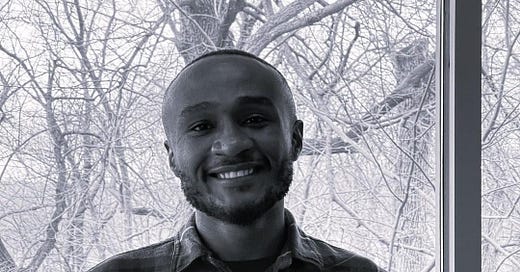Beyond the Essay - Okwudili Nebeolisa
“Okwudili Nebeolisa is a Nigerian writer who just graduated from the Iowa Writers Workshop where he was a Provost Fellow and won the Prairie Lights John Leggetts Prize for Fiction. His poems have appeared in Beloit Poetry Journal, The Cincinnati Review, Image Journal, Salamander Magazine, The Sewanee Review, and The Threepenny Review, while his nonficti…






